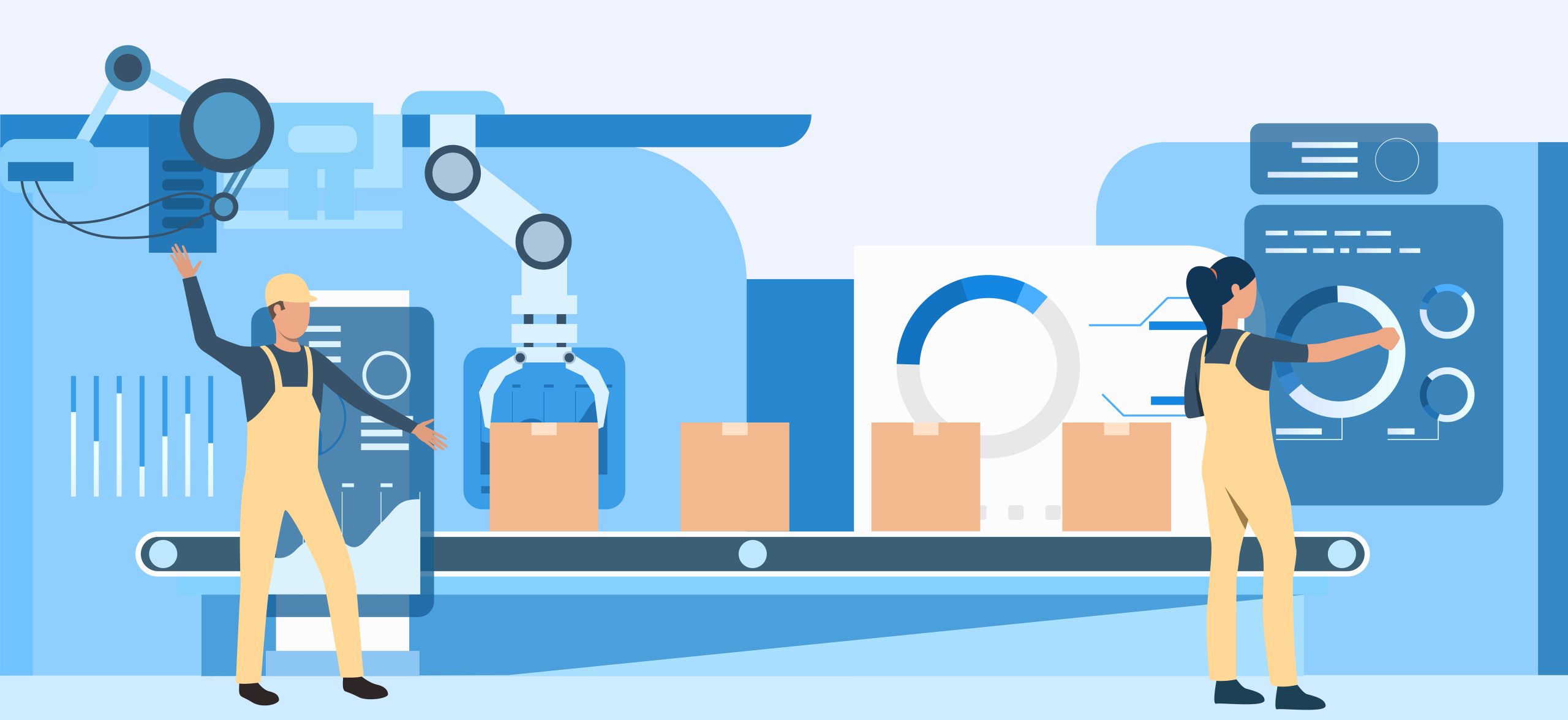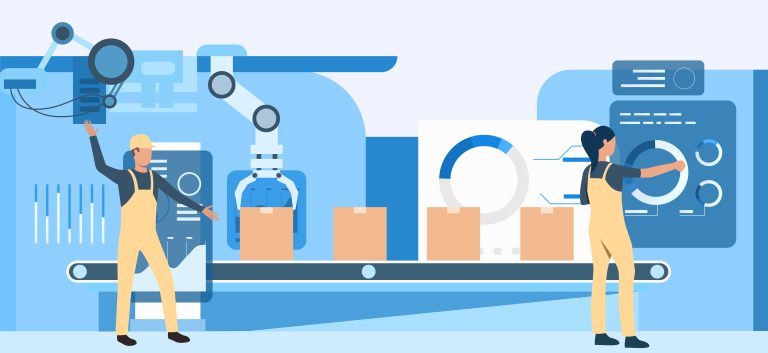
People working at factory. Operational workers, conveyor belt, assembly line. Industry concept. Vector illustration for topics like production, machine, blue color
Introduction
In today’s fast-paced world, running a business without ERP is like trying to live without a heartbeat. You may survive in fragments, but you can’t truly thrive. ERP (Enterprise Resource Planning) isn’t just software anymore it’s the central nervous system that keeps operations synchronized, decisions informed, and growth unstoppable.
1. ERP Connects Every Vital Organ of a Business
Finance, HR, sales, procurement, supply chain, and customer service—these aren’t isolated departments. They are organs of one living body: your business. ERP is the heartbeat that pumps information across these organs, ensuring they work together, not against each other.
- Finance gets real-time data from sales.
- HR aligns workforce planning with operations.
- Procurement responds instantly to inventory signals.
Without ERP, this coordination breaks down—leading to inefficiency and chaos.
2. From Data Chaos to Data Clarity
Modern businesses run on data. But raw data is noise without ERP. A robust ERP system transforms scattered information into a single source of truth. Leaders no longer chase spreadsheets or guess trends—they make decisions based on live dashboards, analytics, and predictive insights.
Think of ERP as the pacemaker that keeps your data heartbeat steady and reliable.

3. ERP Powers Agility in an Uncertain World
Market fluctuations, supply chain disruptions, and evolving customer needs demand quick responses. ERP enables agility:
- 📦 Manufacturers forecast demand and optimize production.
- 🚚 Logistics firms track deliveries in real-time.
- 🛒 Retailers balance stock across online & offline channels.
When challenges strike, businesses with ERP don’t panic—they pivot.
4. The Future of ERP Is Smarter Than Ever
The ERP heartbeat is evolving with:
- AI & Machine Learning → Automated forecasting, fraud detection, process optimization.
- IoT Integration → Real-time machine and fleet monitoring.
- Mobile ERP → Decision-making on the move.
- Cloud ERP → Scalable, cost-effective, always available.
Tomorrow’s ERP won’t just support your business—it will think with it.
5. Why Businesses Can’t Afford to Ignore ERP
Companies delaying ERP adoption often face:
- Fragmented systems and silos
- High manual errors and costs
- Slow response to customer needs
- Missed growth opportunities
Meanwhile, ERP-driven businesses enjoy efficiency, transparency, and resilience—the qualities every modern enterprise needs to stay competitive.
Conclusion
If your business is the body, ERP is the heartbeat. It ensures every part gets the right data at the right time, powering growth, resilience, and innovation. In 2025 and beyond, ERP isn’t a choice—it’s a lifeline for businesses that want to lead, not just survive.


